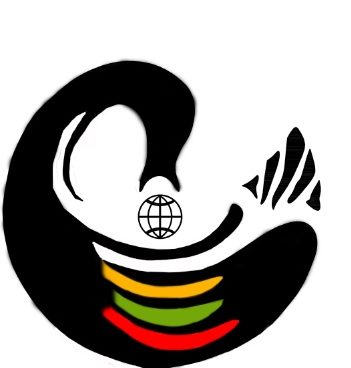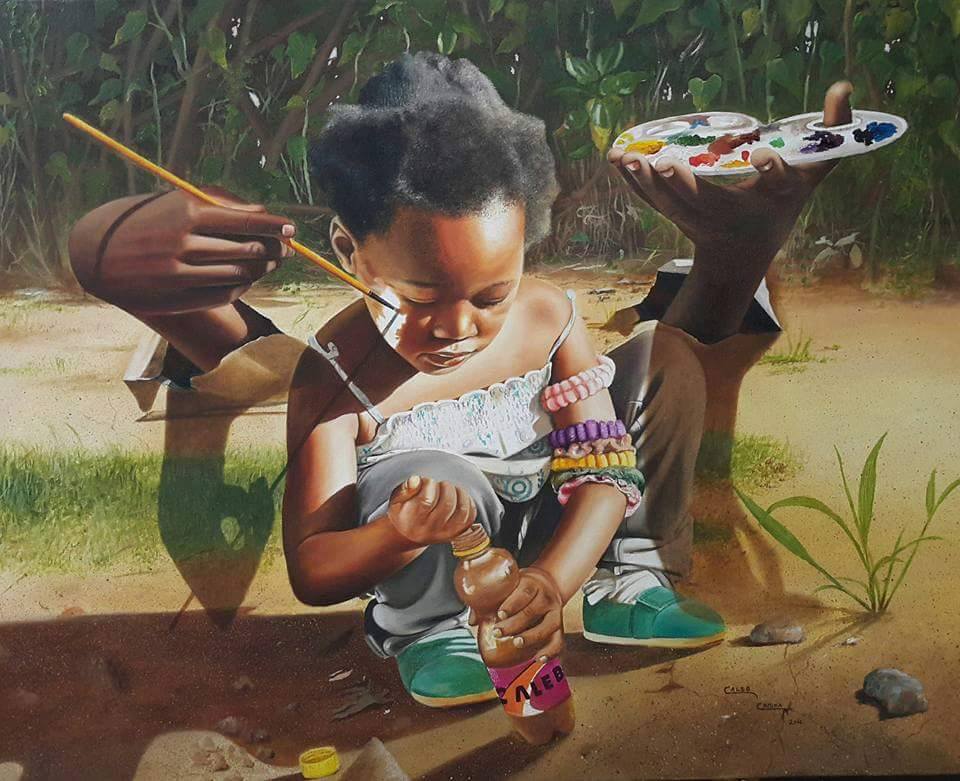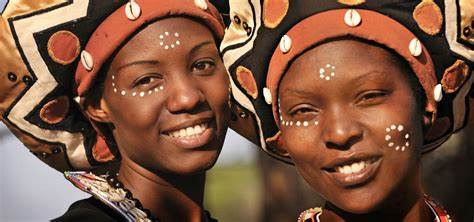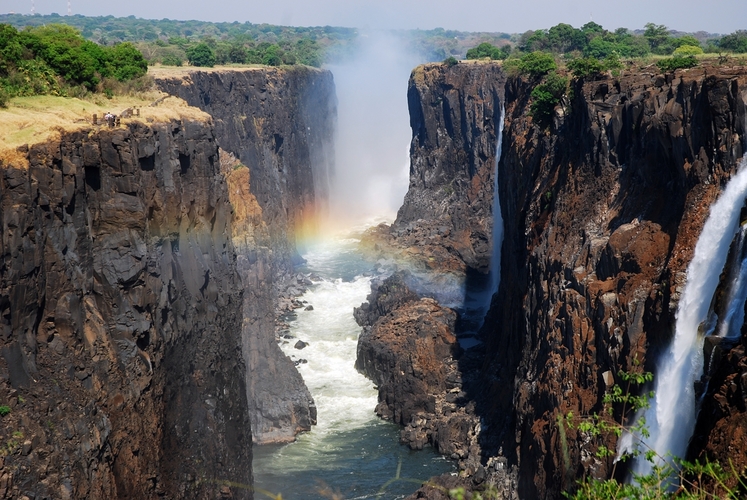Zambia is located on the inland of Africa. It is situated on a high plateau in south-central Africa and takes its name from the Zambezi River, which drains all but a small northern part of the country.
Zambia has a long land border on the west with Angola but is divided by its neighbors to the south by the Zambezi River. To the southwest is the Namibian territory, known as the Caprivi Strip, at the eastern end of which Zambia and three of its neighbors (Namibia, Botswana, and Zimbabwe) appear to meet at a point. Zambia’s other neighbors include Mozambique to the southeast, Malawi to the east, and Tanzania to the northeast. Most Zambians speak Bantu languages of the Niger-Congo language family and are descended from farming and metal-using peoples who settled in the region over the past 2,000 years. Numerous languages or dialects have been identified in Zambia. There are seven official vernacular languages: Bemba, Nyanja, Lozi, Tonga, Luvale, Lunda, and Kaonde, the latter three being languages of North-Western Province. English is the official language of government and is used for education, commerce, and law. Zambia is predominantly a Christian country, although few have totally abandoned all aspects of traditional belief systems. The first Christian missions arrived before colonial rule, and the growth of adherents was greatly assisted by the schools that they established. More than three-fourths of Zambians identify as Protestant, while Roman Catholics make up one-fifth of the population. Other minerals worked in Zambia include cobalt, gold, and silver, all of which occur in association with copper. Iron ore is found near Mumbwa. There is an increasing awareness of the value of Zambia’s gemstones. Zambia’s emerald deposits are among the world’s largest; the gem is mined near Luanshya and Ndola and cut and polished locally. Amethyst, aquamarine, and tourmaline are also mined. Since the 1950s the Zambian cultural scene has been transformed by large-scale urbanization and exposure to exotic influences from Europe, the Americas, and other parts of Africa. The popularity of soukous dance hall music from the Democratic Republic of the Congo, for example, has overwhelmed interest in indigenous music. Although boxing, netball, volleyball, squash, rugby, golf, and athletics are all popular, football (soccer) is considered the national sport. Football, first introduced in Livingstone, has become so popular throughout the country that it is common to find streets empty and business at a standstill when an important international match is being played.
Things to Do:
Visit the Chisimba Falls
Visit One of the Oldest Museums Livingston
Visit Kalimba Reptile Park





